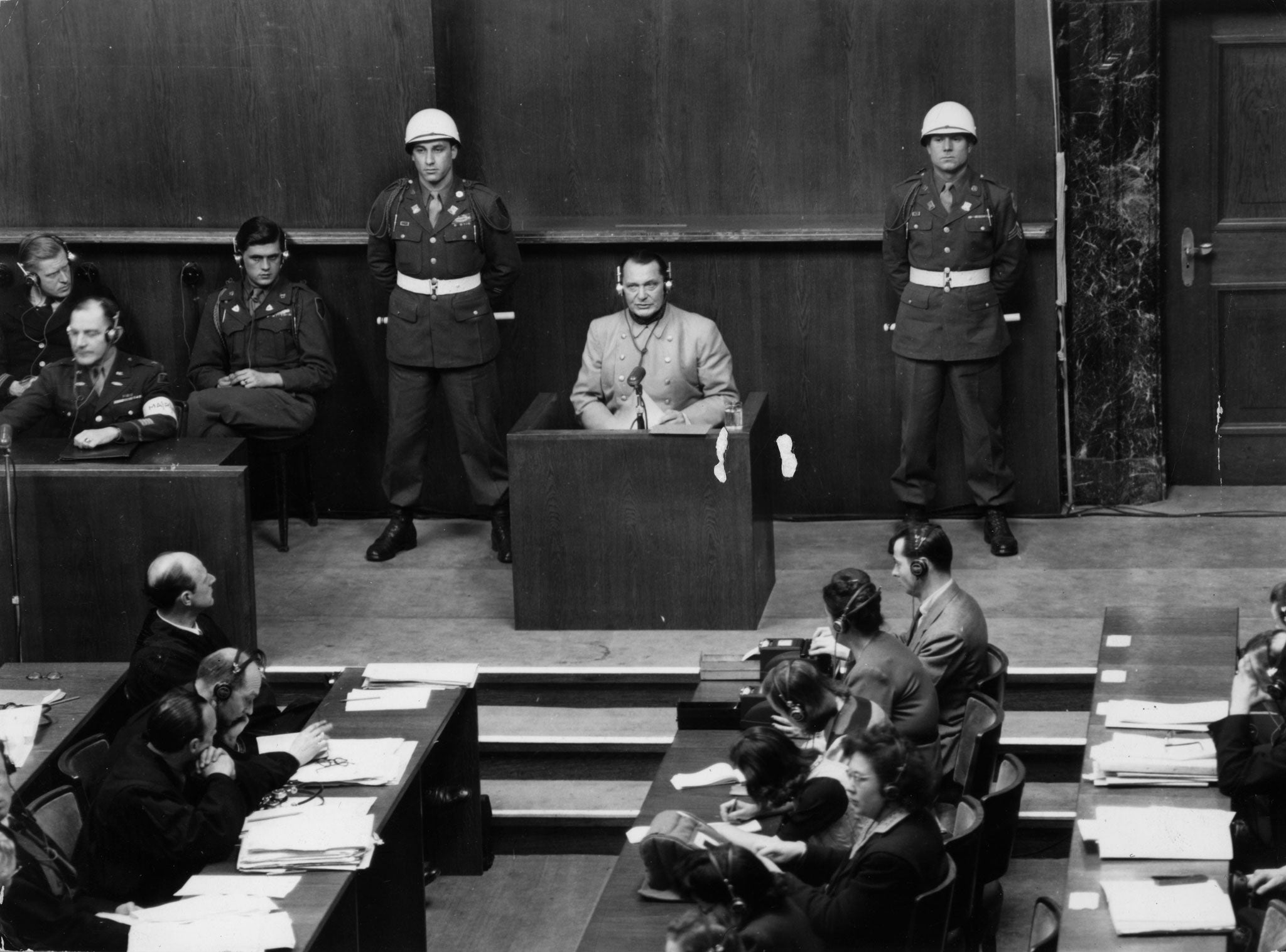The Nazi and the Psychiatrist, By Jack El-Hai: Book review - fascinating account of the army doctor who studied Nazi personality

At the end of the Second World War, many leading Nazis were in captivity, and an American army psychiatrist, Captain Douglas Kelley, was given the job of judging whether they were psychologically fit for trial as well as keeping them physically healthy until that date.
Kelley also had his own goal: to ascertain whether there was a "Nazi personality" that was predisposed to the perpetration of atrocities; some sort of psychiatric illness that might explain why such crimes had occurred. Knowing that the Nazis might present themselves in a self-aggrandising light, Kelley shrewdly also read the speeches, books and letters written by the men in captivity, and watched newsreel footage of Nazi rallies.
Of all the Nazis in captivity, former Reichsmarschall Hermann Göring was the highest ranking, having at one time or other served as Commander of the Luftwaffe, President of the Reichstag, Prime Minister of Prussia, and Minister of Economics. He had been instrumental in sending six million to their deaths. He was the Nazi that Kelley found most fascinating. Voluble and sociable, Göring was happy to talk to Kelley. Kelley, in turn, found him to be a loving family man who had adored animals ( he brought in anti-vivisection laws and protected stray cats and dogs.) Yet his ruthlessness and cruelty was apparent.
Other Nazis studied by Kelley included Julius Streicher, publisher of the anti-Semitic newspaper Der Stürmer, which spread vile lies about Jews. Streicher was loathed even by other Nazis: he had been found with the largest pornography collection ever seen, and was known to be a sadist and rapist.
Ernst Kaltenbrunner was another, deemed by Kelley to be "a typical bully, tough and arrogant when in power, a cheap craven in defeat, unable to even stand the pressures of prison life".
Kelley found that apart from relatively common neuroses, and with the exception of Robert Ley, who Kelley believed to be brain-damaged, there was no psychiatric condition that could explain the behaviour of the Nazis.
They displayed signs of narcissism, arrogance and paranoia and lacked empathy for those outside their social circles, but were otherwise normal. The finding that relatively normal men could enact such crimes led Kelley to fear that similar barbaric atrocities against others could arise elsewhere. He mentioned the white supremacists in Mississippi and Georgia, and feared that workaholics with strong convictions might elsewhere show similar disregard for the lives of others.This is a detailed, meticulously researched book about a man who showed that evil can arise anywhere.
Join our commenting forum
Join thought-provoking conversations, follow other Independent readers and see their replies
Comments
Bookmark popover
Removed from bookmarks